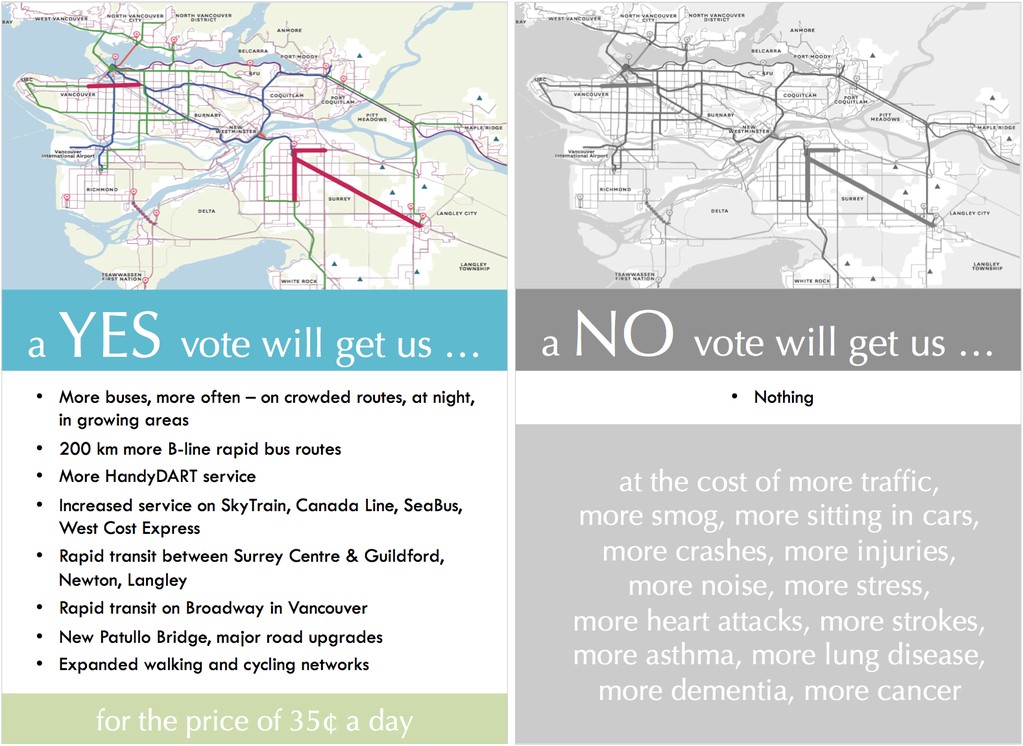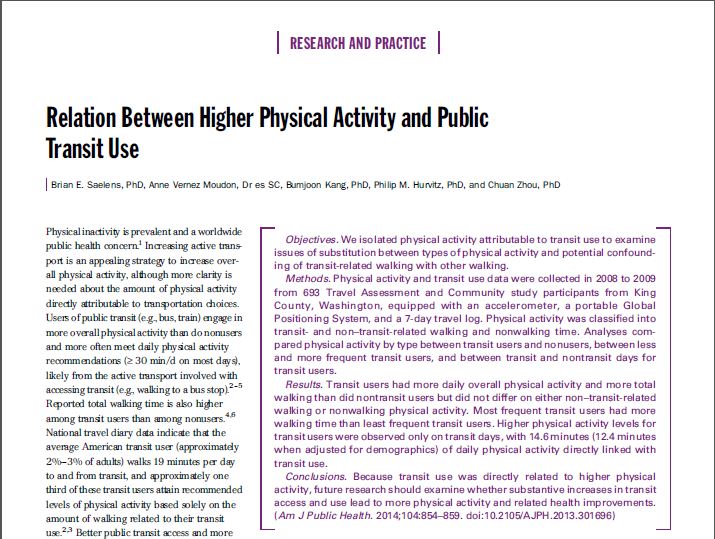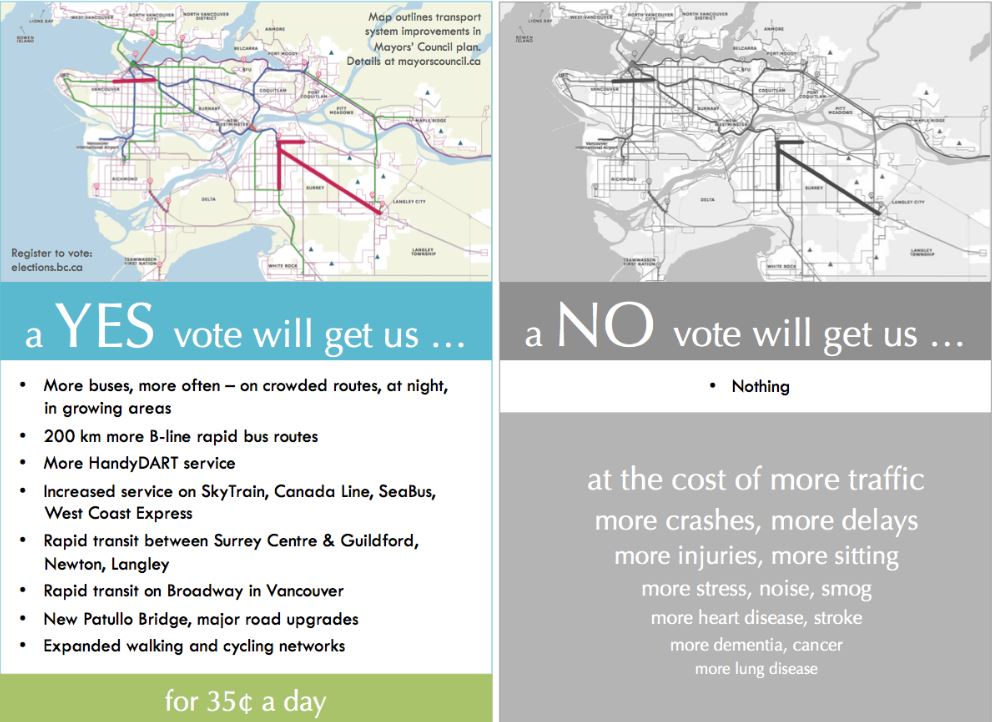Last week, Ohrn sent in this visual from UBC prof Kay Teschke:
.
.
.
Response from the No side: dismissive. Rejection without proof.
.
.
Unable to make connections from A to C, the usual suspects put out a quick release:
Claims by the pro-TransLink tax campaign that a NO vote will cause cancer, dementia and strokes, shows how desperate the YES campaign has come, the No TransLink Tax campaign said today.. UBC professor Kay Teschke made the claim yesterday to News 1130, after TransLink YES campaigner Gordon Price posted her statements to his blog.
.
So we asked Kay for a response:
.
Perhaps we should be happy to have people talking about our message instead of us talking about theirs.
I was on Global TV for a short interview on Friday evening, and the interviewer seemed to understand that physical activity is related to most chronic diseases, but hadn’t realized that people who take transit get in more walking on their way to and from transit stops. It seems so easy and that is what makes it so wonderful.
.
Here is a bit of the evidence.
.
On transportation and physical activity:
.
- A very recent study done in the Seattle area (attached) showed that those who use public transit regularly get about 15 minutes more overall physical activity per day (~4,000 minutes a year).
- Other studies have shown that getting your daily exercise in transport trips is easier for people to maintain than special exercise programs like going to the gym.
- Larry Frank and others have studied the relationship between transit, walking, driving and body weight, and found those who have to drive more are more likely to be overweight.
.
.
On health and physical activity
.
- The World Health Organization oversaw a scientific literature review (attached) called “Global Burden of Disease Study 2010”. It names high body mass index (overweight) as the number 2 risk factor for disease in Canada and the US, physical activity number 5, and particulate air pollution number 14.
- It lists the following diseases as outcomes of overweight: esophageal cancer, gallbladder and biliary tract cancer, kidney cancer, uterine cancer, colon and rectal cancer, diabetes, ischemic and many other types of heart disease, stroke, vascular disease, osteoarthritis, and kidney disease (p. 2231)
- It lists the following diseases as outcomes of physical inactivity: breast cancer, colon and rectal cancer, diabetes, ischemic heart disease, and stroke (p. 2231)
- It lists the following diseases as outcomes of particulate air pollution: lower respiratory infections, lung cancer, ischemic heart disease, cerebrovascular disease and chronic obstructive pulmonary disease (COPD) (p. 2227)
- The evidence on dementia is indirect in the Global Burden of Disease report, via the strong link between dementia and diabetes. But dementia is also related to inactivity directly. A recent British study assesses health gains from active transportation and ranks the gains for each of several diseases (Table 8). It concluded that dementia was the disease with the 3rd highest benefits from active transportation.
.
Table 8: Click to enlarge
.
On injuries and transit
- Finally, the health issue that doesn’t get as much attention as it deserves is the great traffic safety record of transit. Todd Litman summarizes the evidence: one-tenth the injury rate in transit travel compared to driving. This results in one-fifth the per capita traffic injuries in transit-oriented communities compared to auto-oriented ones.
.
Here’s a revised version of my graphic with a clearer ordering of the risks – though the scaling represents order not size of risk.
.
.
.
Transit, walking and bicycling all have a huge potential to positively impact health via increased and sustainable physical activity. I am so immersed in the scientific evidence that I didn’t realize that people might not know this. So glad to have the opportunity to make sure people do know.




















Lawrence realizes what country he lives in, right? US FDA? And what does TransLink have to do with Kay’s interview?
Maybe while he’s at it he should write our Canadian Congress-person in DC asking them to intervene.
Prof Teschke is not alone. This article’s headline reads: Vancouver’s Chief Medical Health Officer Backs Transit YES vote. Because transit users are more active, and active people are less subject to common chronic illnesses. There are other health-related benefits too.
http://metronews.ca/news/vancouver/1272655/vancouvers-chief-medical-health-officer-backs-transit-yes-vote/